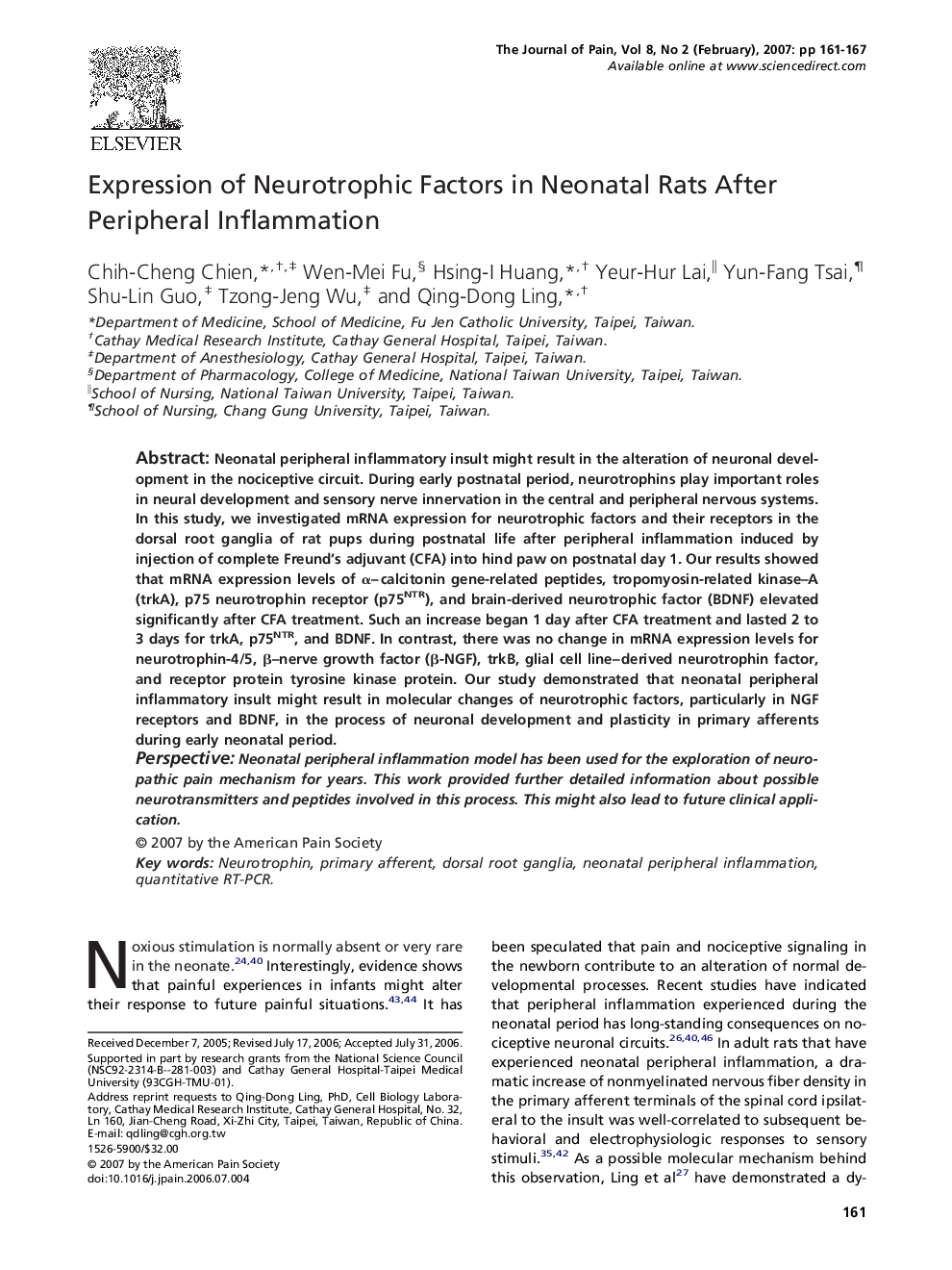| Article ID | Journal | Published Year | Pages | File Type |
|---|---|---|---|---|
| 2729413 | The Journal of Pain | 2007 | 7 Pages |
Neonatal peripheral inflammatory insult might result in the alteration of neuronal development in the nociceptive circuit. During early postnatal period, neurotrophins play important roles in neural development and sensory nerve innervation in the central and peripheral nervous systems. In this study, we investigated mRNA expression for neurotrophic factors and their receptors in the dorsal root ganglia of rat pups during postnatal life after peripheral inflammation induced by injection of complete Freund’s adjuvant (CFA) into hind paw on postnatal day 1. Our results showed that mRNA expression levels of α–calcitonin gene-related peptides, tropomyosin-related kinase–A (trkA), p75 neurotrophin receptor (p75NTR), and brain-derived neurotrophic factor (BDNF) elevated significantly after CFA treatment. Such an increase began 1 day after CFA treatment and lasted 2 to 3 days for trkA, p75NTR, and BDNF. In contrast, there was no change in mRNA expression levels for neurotrophin-4/5, β–nerve growth factor (β-NGF), trkB, glial cell line–derived neurotrophin factor, and receptor protein tyrosine kinase protein. Our study demonstrated that neonatal peripheral inflammatory insult might result in molecular changes of neurotrophic factors, particularly in NGF receptors and BDNF, in the process of neuronal development and plasticity in primary afferents during early neonatal period.PerspectiveNeonatal peripheral inflammation model has been used for the exploration of neuropathic pain mechanism for years. This work provided further detailed information about possible neurotransmitters and peptides involved in this process. This might also lead to future clinical application.
